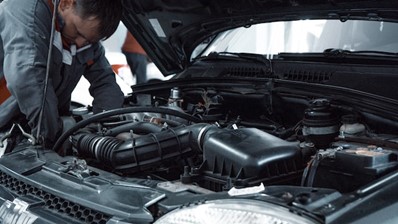
When buying a new car, it’s essential to know what will be covered on the vehicle before it’s driven off the lot. The difference between an extended warranty and a service contract may seem subtle, but it’s important to understand the nuances between both options before deciding which to choose.
Cars Protection Plus explains that the key difference between vehicle service contracts (VSC) and manufacturer car warranties is in what each covers on a vehicle, as well as how long they last. Car warranties cover non-wear-related defects for up to 3-5 years. Service contracts can last longer than a decade and cover additional parts of the vehicle.
Deciding whether to choose a service contract, extended warranty, or neither is a key decision when purchasing a new vehicle. Find out more about what these coverage options include, as well as other important differences in how they each function.
Differences in Coverage Between VSC’s and Car Warranties
Vehicle service contracts and car warranties are similar in that they provide coverage if repairs are needed, but they don’t both cover the same things. Keep in mind that the exact details of warranties and service agreements will vary depending on the make and model of the vehicle, if the car is used vs. new, the location, and more.
Below is an in-depth look at how these two coverage options protect a vehicle:
Car Warranty
- Warranty Coverage Timeframe: 3-10 years, or 36,000-100,000 miles, whichever one comes first
- Bumper-to-bumper coverage: Repairs all factory-installed parts of the vehicle
- Powertrain or Drivetrain coverage: Repairs engine, transmission, and transaxle parts
- Corrosion Warranty: Covers rusted sheet metal areas of the vehicle
Vehicle Service Contract
- Coverage Timeframe: 1-15 years, or up to 300,000 miles
- Powertrain Warranty: Covers all parts required to make the vehicle move
- Bumper-to-Bumper Warranty: Excludes pre-existing issues
- Custom Coverage Plan: Covers some extra components such as the brake system, air conditioning, audio system, suspension, steering, and more

Other Key Differences Between Vehicle Service Contracts and Car Warranties
Vehicle service contracts have a waiting period of 30 days and 1,000 miles before they begin to actively cover a purchased vehicle. Manufacturer warranties are active instantly upon purchase.
Car warranties are free, but vehicle service contracts usually cost extra. Vehicle service contracts can be applied to any vehicle, regardless of age or mileage. In contrast, a warranty only applies to new or used vehicles still within their coverage period (usually 2-5 years)
A warranty is generally always provided by the manufacturer of the vehicle, but a vehicle service contract can be provided by a third-party company.
A vehicle service contract will pick up what your manufacturer warranty leaves out, but a deductible will have to be paid when getting a repair, which won’t be needed with a warranty.
Warranties require that the vehicle is serviced at the dealership or an approved service center, while someone with a VSC can go to any approved service center in any location.
Final Thoughts
Clearly, there aren’t many big-ticket differences between vehicle service contracts and car warranties. Though the differences are quite subtle, they each have a great deal of value for vehicle owners. The main benefit of a vehicle service contract over a manufacturer’s warranty is the additional years and miles of covered repairs.
